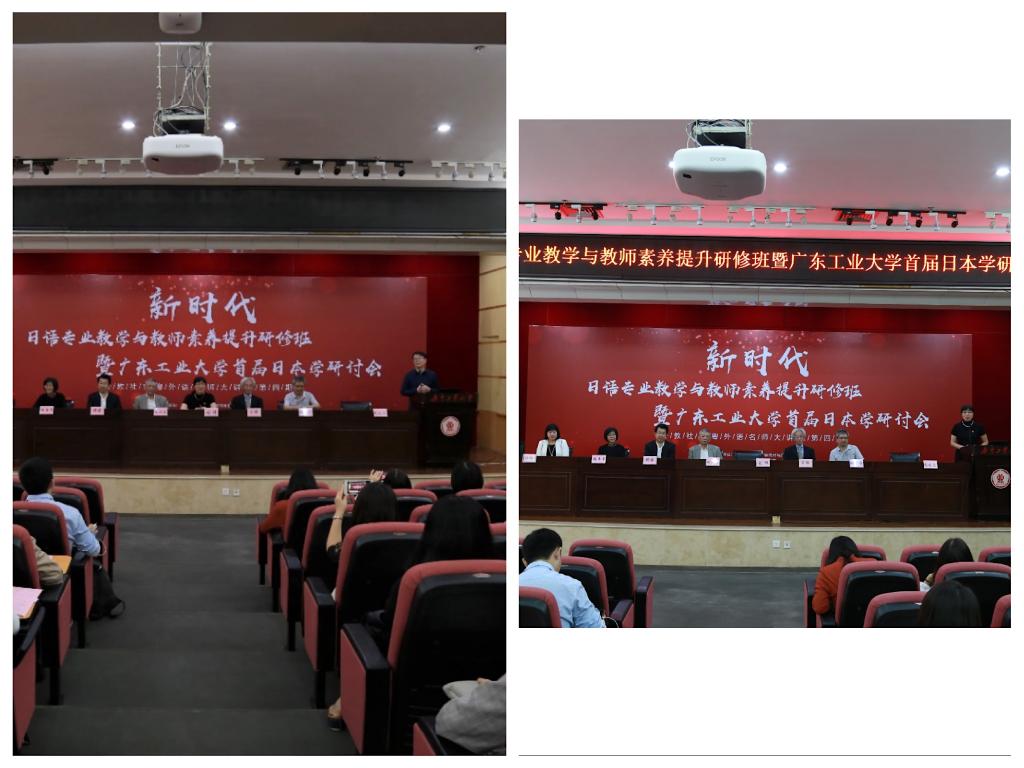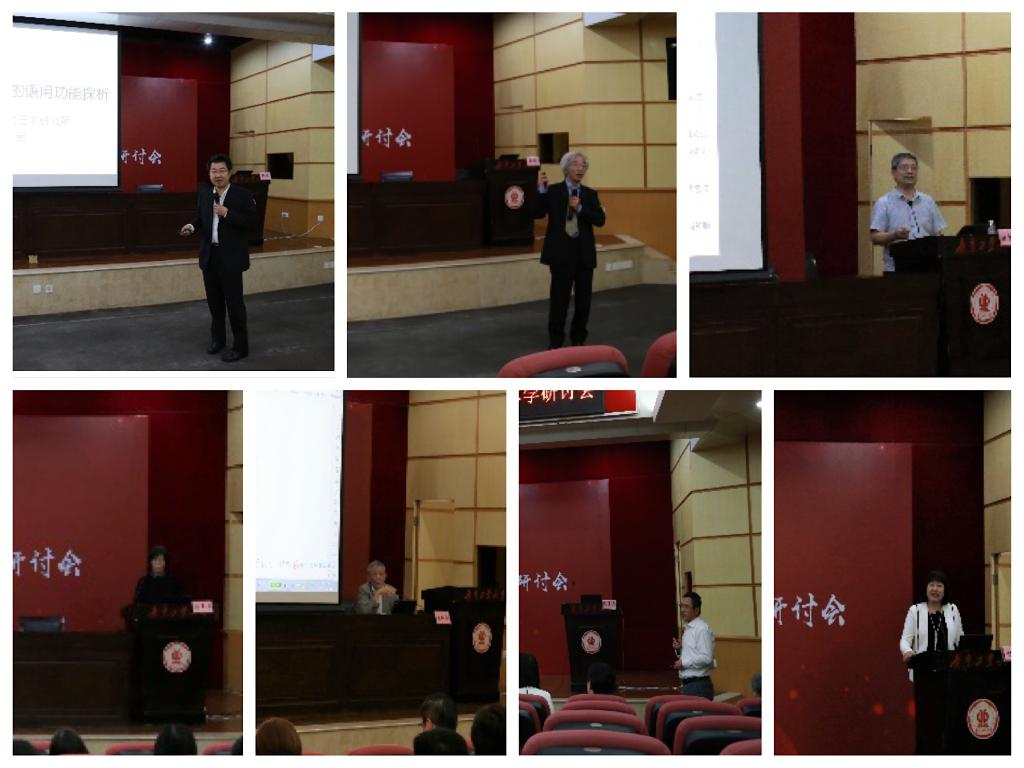On November 16, the "Seminar on Japanese Teaching and Teacher Quality Improvement in the New Era and the First Symposium on Japanese Studies" were jointly organized by School of Foreign Languages and Shanghai Foreign Language Education Press in the lecture hall on the eighth floor of the library of Dongfeng campus. The conference attracted nearly one hundred Japanese teachers from various universities in China. LIU Wei, Secretary of the School of Foreign Languages, Guangdong University of Technology, delivered a welcome speech first. Secretary LIU Wei pointed out that with the formal implementation of the Plan for the Guangdong-Hong Kong-Macao Greater Bay Area, Guangdong Province has ushered in unprecedented new opportunities for development. Under the new situation of constructing the Guangdong-Hong Kong-Macao Greater Bay Area, it has become a new topic for the community of Japanese studies to find ways to make full use of the advantages of Japanese studies research so as to make it more satisfied with the needs of the Greater Bay Area, better serve the construction of the Greater Bay Area, and cultivate innovative and applied professionals. The purpose of this conference is, with the spirit of the Ministry of Education to improve teaching quality and faculty cultivation in universities, to promote the cultivation of Japanese teaching and research talents in universities and to meet the needs of Japanese teachers’ professional development to help them develop better. 
Afterwards, seven experts and scholars from Shanghai International Studies University, Sun Yat-sen University, Jinan University and Guangdong University of Foreign Studies and other well-known domestic universities gave keynote speeches. Professor Tong Jun from Sun Yat-sen University analyzed the negation, word formation and substitution of the old Japanese universal verb "あり" and discussed its pragmatic function in depth. Professor Wang Zhuo from Jinan University through examining the works of Sinology master Wang Guowei suggested that the formation of Wang Guowei's academic thoughts was based on the translation of a large number of Japanese academic works. Associate Professor Lin Qinghua of our university, through detailed examination and comparison, proposed that the four main criteria for a good translation are: appropriate genre, accurate words, exact understanding and moderate effort. Professor Zhang Yuqin from Guangdong Business and Technology University discussed the problems and their countermeasures in the faculty cultivation of Japanese major in private universities under the background of new era. Professor Pi Xiegeng from Shanghai International Studies University, based on his teaching experience of many years, vividly and specifically analyzed the characteristics of Japanese phonetics, characters, vocabulary, grammar, and language and culture, society and life, and pointed out some areas that need attention in the reflection on teaching. Combining with the new national standard of Japanese language, Professor Chen Dayou from Guangdong University of Foreign Studies pointed out the problems and directions of the reform of Japanese major in the light of the new situation, new demands, new trends and new changes that we are facing nowadays. Professor Yang Hong of Lingnan Normal University highlighted the faculty cultivation, curriculum and teaching material setting and talent training mode of Japanese major in Lingnan Normal University, and put forward some feasible suggestions to improve the teaching level and quality of Japanese teachers in universities. 
In this conference, we exchanged and looked ahead to the current situation and prospects of Japanese studies and the reform of Japanese major, discussed and researched new perspectives, new viewpoints and new methods for the construction of Japanese studies and Japanese major. The success of this conference is of great significance to the promotion of Japanese studies and Japanese major. The teachers who attended the conference all expressed that they had benefited a lot from the conference. They hoped to meet again next year at Guangdong University of Technology to continue to discuss how to improve their teaching quality and research level under the background of the new era. 
|